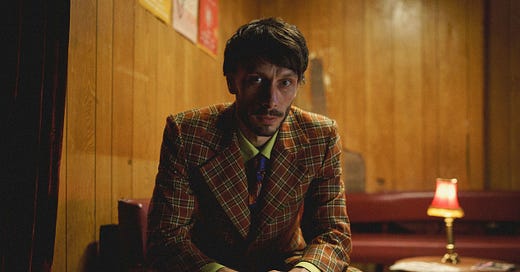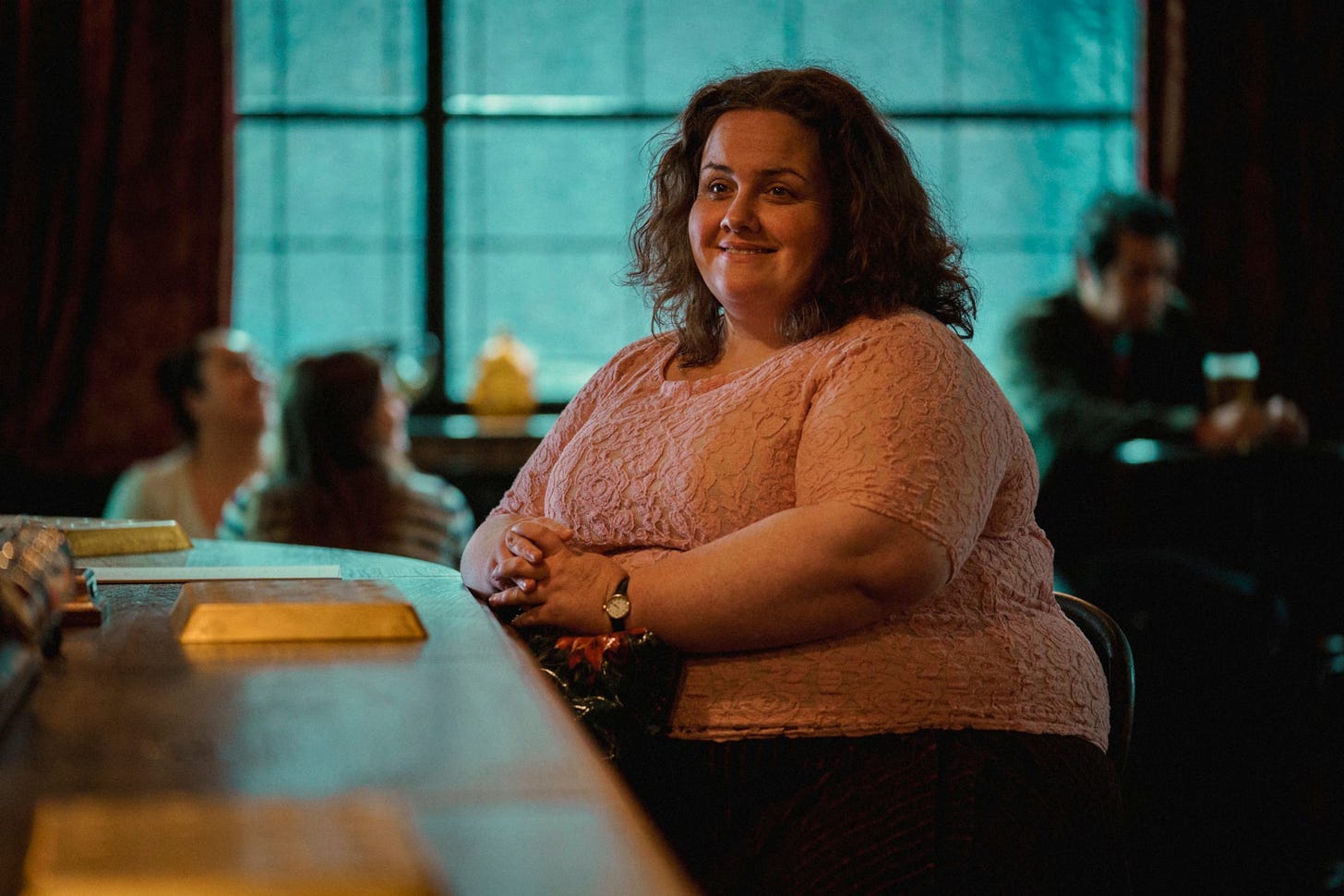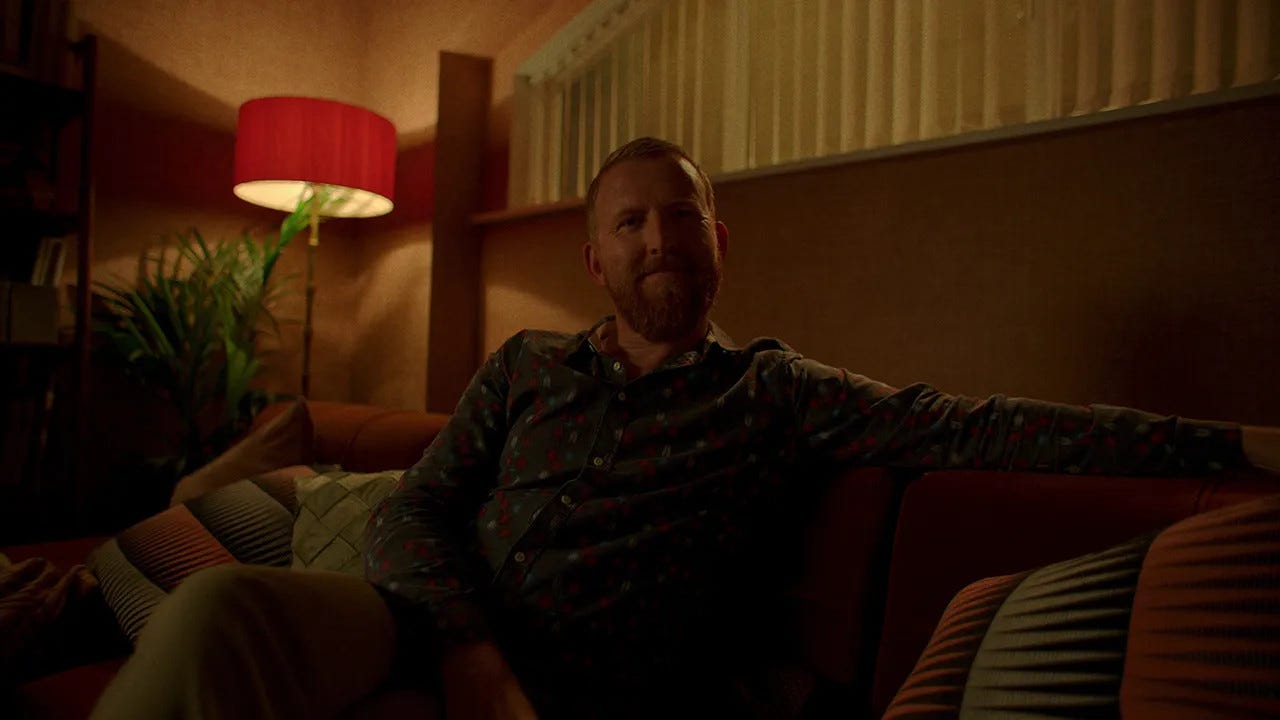Isolate, Gaslight, Abuse: ‘Baby Reindeer’ Works the POV
Richard Gadd’s buzzy story of stalking, sexual assault, and self-hatred plays a trick as old as time, and plays it well.
NEW STANDARD DISCLAIMER: This newsletter aggressively spoils things.
Baby Reindeer is an unlikely hit show in a lot of ways. It’s not based on some buzzy IP like a book or a movie1, it doesn’t boast a starry pedigree of heavy hitters (raise your hand if you’d heard of Richard Gadd before this—PUT YOUR HAND DOWN YOU LIARS), it’s not crammed with edgy effects or weirdo narrative tricks. It’s also kind of grim, a show that will inspire a lot of therapy sessions2.
It is, however, very well done. Gadd’s autofiction about the stalker he acquired as he struggled to break into the comedy business, his own trauma and experience with sexual assault, and his attempts to make a name for himself in show business is well-written and tightly directed—again, not showy, but steady and creative. It’s crammed full of those glittering details that can only come from lived experience or immense observational abilities—the much-celebrated detail that his stalker, Martha (Jessica Gunning), manually types “sent from my iPhone3” (often deliriously misspelled) at the end of every text she sends, or the pitch-perfect decor (best described as Hideous Middle Aged Asshole) in Darrien’s (Tom Goodman-Hill) cave-like apartment4—which give it a sense of place and heavy reality that helps the violence and horror land viscerally.
By all accounts, the story is remarkably close to what really happened, both to Gadd himself and generally in regards to the other characters, who are all based on actual, real human beings. And hewing so closely to real life while adding a layer of fiction on top makes it incredibly hard to critique the show as entertainment, because the response to any criticism is a variation on “Well, that’s how it actually happened.5”
A Comedian When They Laugh
What this means is that you can nibble around the edges of the story—you can delve into and critique the specific writing, the lines and such, or the direction or costuming—but you can’t really critique the story, because it all actually happened. You can’t say, well I don’t buy that Richard would do this thing, it’s just not believable. But it actually happened, so your criticisms are useless6.
That puts Baby Reindeer in an odd place. It’s not fiction, but it’s fictionalized. The author-audience relationship is always one-sided; the only information you get is what the writer decides to give you7. Even in stories where the author appears to offer up brutal honesty—like Baby Reindeer, where Gadd divulges some not particularly complimentary things about the character based on him—you’re still only getting the unpleasant details they’re willing to show you. You have no way of knowing if there’s more to the story, especially when it’s fiction and there’s literally only the story they’ve bothered to imagine.
If it was a true adaptation—a “base on a true story” deal—you could dig in there, because there’s explicit storytelling at play. But the autofiction category is dicey when it comes to analyzing the plot; it’s not fiction, it’s just massaged to obscure the details, avoid lawsuits, and protect privacies8. That doesn’t mean it’s any less effective as a story—Baby Reindeer is captivating, and Gadd is a terrific writer who shows a lot more courage than I would in similar circumstances9—it just means you can’t analyze it like you would a fictional version of the same events.
But It Mattered
This is also the superpower of the show. Gadd’s lived experience lends every event in the story irrefutable credence, and it stops mattering whether you as the audience believe it, or buy it. Because it happened. Considering how often abuse and sexual assault is trivialized in this world, the urge to object to certain plot twists, to say “no one would actually do that10,” that no one would make decisions that seem obviously crazy to folks who haven’t experienced that kind of horror is strong—and if this were a work of fiction, no matter how informed by the author’s actual experience, you would be able to at least levy that criticism.
But it isn’t fiction, and thus those criticisms bounce off and force us to imagine ourselves in that scenario, as best we can, and to admit that we can’t possibly comprehend what Gadd/Donny went through, and how it affected him. Every time you have the urge to deny that evil like this can happen, and that it can bend and warp people into shapes even they find unfamiliar, you have to pause and realize that, no, it actually happened. And it can, and they do.
NEXT WEEK: Late Night with the Devil plays a mean trick.
If you enjoy this newsletter, consider subscribing to my paid fiction Substack, Writing Without Rules: From the Notebook!
Or even a non-buzzy IP like, say, The Gentlemen, which was trending negative in the buzz department and yet was still deemed worthy of a series adaptation, for reasons that remain obscure.
This is starting to sound like my as-yet-untitled memoir, working title ARE YOU SITTING DOWN FOR THIS?
It is the year of our cat 2024 and I am just realizing that people (checks notes) care what kind of phone you use? Man, human beings are wild.
Seriously: Anyone with a modicum of mental health would have walked into that apartment, taken one look around, assumed many, many undocumented immigrants had died horrible in there, and fled the scene. The set dressing is <chef’s kiss>.
Frustratingly, this line does not work on The Duchess when I try to explain why I am climbing in through the bathroom window at 3AM with no pants on.
Your criticisms are also useless against me, but it’s because of my crippling self-confidence.
For example, you don't even know my real name. I'm the fucking lizard king.
In other words, it’s like my resume and every job application I’ve ever filled out.
I pretty much lie to make myself look better at all times. It’s kind of a standing policy.
One of the more difficult things to explain to aspiring writers is that just because something actually happened doesn’t mean it makes for a good story.







Damnit, I thought it was Monday.